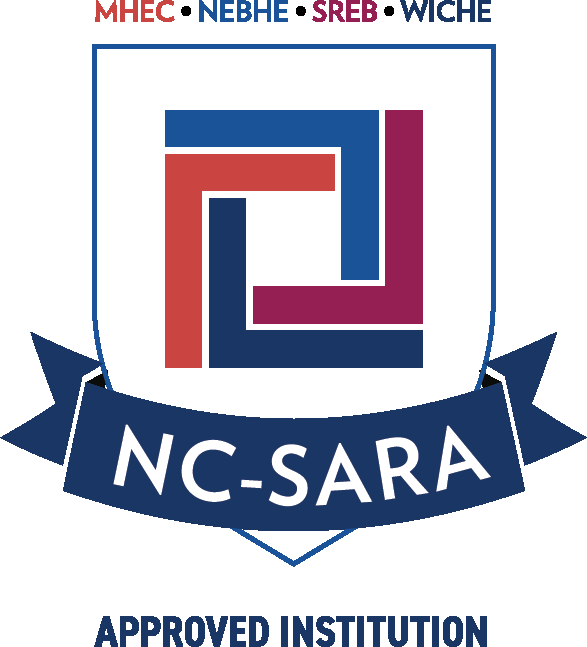Additional DE Student Information
Student Identity Verification
The Higher Education Opportunity Act (HEOA) requires institutions offering distance education courses or program to have processes in place to ensure the student who registers in a distance education course or program is the same student who participates in the course or program and receives the academic credit. Additionally, the HEOA requires institutions to implement processes protecting student privacy and notifying students of any projected additional student charges associated with the verification of student identity at the time of registration or enrollment.
Luzerne County Community College meets the requirements by assigning each student a secure login and password to access Blackboard Learn, the college's course management system, and the college network. All students registering for a credit course are assigned unique identification numbers, which correspond with a specific username for each student. Each student establishes and manages their password using the course management system. Faculty using course management systems other than Blackboard Learn are encouraged to use only those systems requiring a single sign on.
In addition, faculty, staff and students are requested to communicate regarding educational records and specific courses via the official LCCC email account, which also requires a secure login. Students are notified of any associated course fees at the time of registration. However, there are no additional costs associated with authentication of student identity at LCCC.
Academic Integrity
The LCCC Code of Conduct and policies related to Academic Honesty, apply to distance education courses. Students are expected to abide by the standards established for academic integrity in all courses. Students are additionally responsible for maintaining the security of usernames and passwords.
State Authorization
Luzerne County Community College is a SARA-approved institution through the Pennsylvania Department of Education (PDE), and a member in good standing with the National Council for State Authorization Reciprocity Agreements (NC-SARA). The National Council for State Authorization Reciprocity Agreements (NC-SARA) is a nonprofit organization that helps expand students' access to educational opportunities and ensure more efficient, consistent, and effective regulation of distance education programs.
The State Authorization Reciprocity Agreement (SARA) is a voluntary agreement among its member states and U.S. territories that establishes comparable national standards for interstate offering of postsecondary distance education courses and programs. Currently, 49 states and the District of Columbia participate in SARA, as well as Puerto Rico and The U.S. Virgin Islands. California does not participate in SARA. Institutional participation in NC-SARA has numerous benefits:
- Improves distance education program quality nationwide.
- Makes it easier for students to access distance education programs across state lines.
- Reduces costs and bureaucracy for states and institutions.
- Improves coordination between states on higher education opportunities.
- Provides valuable oversight of distance education programs.
- Shares out-of-state learning experience data like clinical hours and practice teaching.
SARA is intended to make it easier for students to enroll in distance education programs, courses, or learning experiences offered by postsecondary institutions that are based in a state other than the state where a student is physically located. The student's physical location is determined by where the student participates in the distance education activity, regardless of whether or not it is the student's legal state of residence. Additional situations may include, but are not limited to: military assignments, temporary employment relocation, permanent relocation, internships, co-operative learning experiences, field experiences, or clinicals. Students interested in enrolling in LCCC educational programs while located in California need to inquire with their State about specific policies. Contact the Distance Education Office at 570-740-0335 for guidance in this process.
SARA policy is intended to be consistent with federal law and is therefore subject to change based on federal rulemaking. For more information on SARA and the policies and procedures set forth by the National Council for State Authorization Reciprocity Agreements (NC-SARA), please visit: http://www.nc-sara.org.
Student ComplaintsRegardless of student location for educational programs, students with complaints are encouraged to first attempt to seek resolution within LCCC. Information on this process can be found here: (https://www.luzerne.edu/currentstudents/forms.jsp). In the unlikely event LCCC is unable to resolve the complaint, students in SARA member states may lodge an appeal with the Pennsylvania State Department of Education and refer to the Student Complaints section of the State Authorization Reciprocity Agreement page:
Students located in California will need to utilize the complaint process designated for post-secondary institutions in their state.
Additional information for students in SARA member states regarding the student complaint process can be accessed at:
STUDENT COMPLAINT INFORMATION BY STATE AND AGENCY

Luzerne County Community College has been approved to participate in the National Council for State Authorization Reciprocity Agreements.


